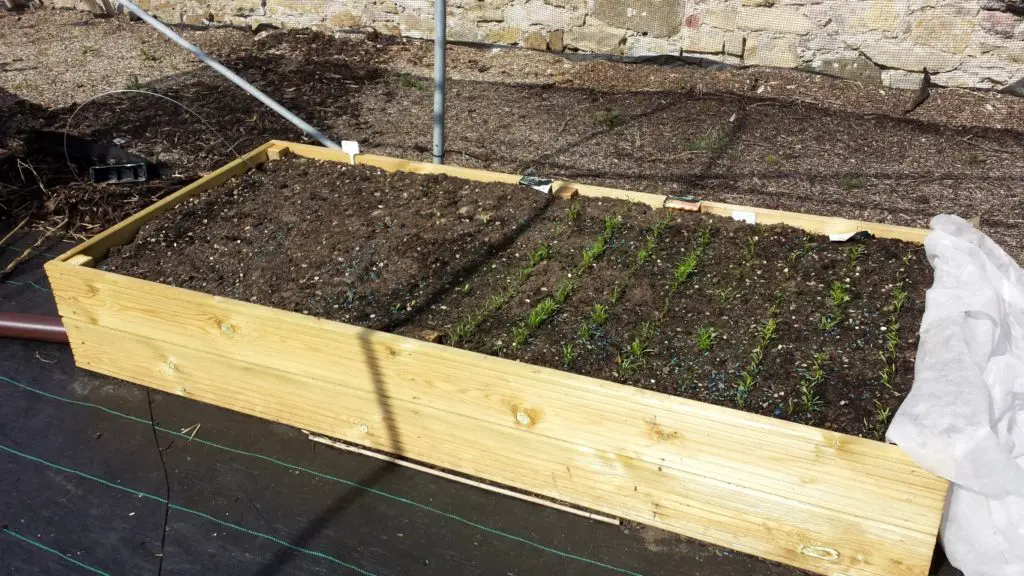
When it comes to tending a raised bed garden, there are a few differences, or subtleties compared to tending a traditional vegetable patch.
Here are a few tips for making life even easier !
Cut a strong ‘spanner board’ i.e. a board that is slightly longer than the width of your bed. Place across the bed, resting on each side edge. This can be used for placing your small garden tools on when working the bed, without leaving them in the wet soil. A good place also to put a glass of something cool !
Avoid standing in the raised bed. This is to prevent the soil becoming compacted, and also to prevent any chance that you will push out the sides of the raised bed, by compressing the soil over time.
If you have multiple raised beds, then put down a weed restricting fabric between them and cover with 2-3 inches of mulching material such as chipped bark. This saves a lot of laborious weeding between the beds, and leaves more time for what really matters in life.
Plants can be grown a little closer together in a raised bed, because of the concentrated nature of the feeding system.
Another good tip and one that will keep the slugs and snails at bay, is to place a copper slug tape or strip around the timber structure. Slugs hate copper because of the way it reacts to the slug mucus, so they will not cross it.
If you have no copper tape and have an immediate slug problem, try spraying a concentrated salt solution around the outside base of the bed. This can be quite effective, but do not let any into your plant bed as it will most likely kill your vegetables !
Working a raised bed garden as can be seen here is slightly different for the ‘normal’ way of gardening – but not so different that you need a new set of rule books so to speak. When speaking to raised bed gardeners, you will probably find that the biggest difference is the fact that they are not suffering from constant backache!
The raised bed is much easier when it comes to weed control – mainly because you have started by using virgin soil that is weed free to begin with. However even after it has been up a while, it is still much easier to weed owing to the softer loamier make-up of the soil or compost.
Even the feeding of the plants is more successful, as all the nutrients are going to the plants and not seeping away into the soil, as is normally the case.
Building multiple raised beds, if you have the space, is ideal. This allows for a good rotation of the different crops and guarantees a great harvest year after year.

